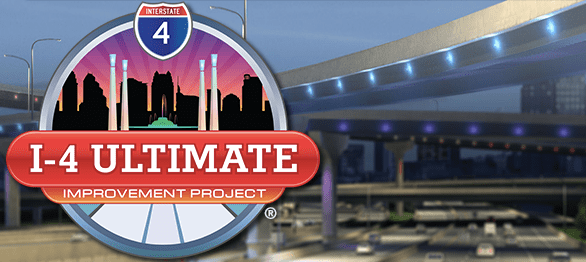With the Trump Administration purportedly gearing up to spend $1 trillion on infrastructure, it's time for a refresher on the perils of highway boondoggles.
The Frontier Group is preparing to release its annual list of the worst highway projects that American transportation agencies are pushing. The organization's Tony Dutzik posts a good reminder today that even under normal circumstances, these expensive, unnecessary road projects suck up a lot of scarce resources. If you add Trump's big spending package to the mix, it won't be a pretty picture.
Here are some of Dutzik's tell-tale signs that you're dealing with a highway boondoggle:
1) It is old enough to have a mid-life crisis. Many highway expansion projects have been in regional transportation plans for decades. In a country that has spent upwards of $5 trillion (2014$) on roads since the mid-1950s, chances are that any highway project that has sat on the drawing board since the 1960s has serious problems – otherwise, it would have been built already. Indeed, some projects have been on the drawing board so long that their entire reason for being has changed. The Mon-Fayette Expressway, which we profiled in our 2016 report, was originally proposed as being necessary to serve the Pittsburgh area’s once-burgeoning steel industry. Now, with that industry only a shadow of its former self, the highway is being sold as a tool to bring industry back to the area.
2) It solves a problem you didn’t know was a problem. Ask people what they don’t like about transportation, and they’ll complain about traffic, or crashes, or dirty air or noise. Often, however, the rationale given for expansion projects has little to do with any of these things. In the case of the quarter-billion dollar U.S. 20 widening project in rural Iowa (discussed in our 2016 report), the project was justified as needed to provide “lane continuity”— that is, the Iowa Legislature decided that the state should have a network of four-lane highways, and this area was the “missing link.” Never mind that no one believes there’ll be enough traffic to justify a four-lane highway there for decades.
Dutzik's full 10-point post is well worth a read. But with the White House pushing hard on public-private partnerships, this point is especially timely:
7) It is pitched as being built with free money. PPPs often create the perception of providing “free money” for transport system investment – encouraging agencies to defy fiscal gravity and build low-priority projects that might not otherwise go forward. There is an important role for thoughtful public-private partnerships in transportation. PPPs, however, are often sold to decision-makers not on the basis of efficiency or value, but rather on their potential to get roads built faster. That is a recipe for future trouble.
More recommended reading today: The Urban Edge reports on Houston Mayor Sylvester Turner's new "complete communities" initiative. And Human Transit considers the success of Barcelona's bus system redesign.






